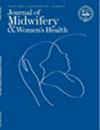Leading Stressors and Coping Strategies Associated With Maternal Physical and Mental Health During the Extended Postpartum Period
Abstract
Introduction
A critical gap exists in understanding stressors and coping that affect women's health beyond 6 weeks postpartum. Using new stressor and coping scales tailored to postpartum women, we examined the relationship of postpartum-specific stressors and coping to women's physical and mental health between 2 to 22 months after childbirth.
Methods
A total of 361 women of diverse race, ethnicity, and functional abilities recruited through clinical and online methods completed online surveys that included Sources of Stress-Revised subscales, such as overload, changes after pregnancy, and low support resources; Postpartum Coping Scale subscales, such as self-regulation, self-care, and health promotion; Patient-Reported Outcomes Measurement Information System Global Health, covering physical and mental health dimensions; and social demographic items. Analyses included hierarchical linear regression models adjusted for social factors.
Results
Education and employment were the only social factors associated with physical and mental health, respectively. After adjusting for social factors, overload (P < .001) and coping through health promotion (P = .020) were the only additional variables associated with physical health. After adjusting for social factors, overload (P < .001) and low support resources (P = .002) and coping through self-care (P = .036) were the only additional variables associated with mental health. Thus, being overloaded was the key stressor associated with decreases in physical and mental health. Health promotion was associated with increases in physical health, and self-care was associated with increases in mental health.
Discussion
These findings point to directions for health care and community interventions to promote health for postpartum women under stress. Strengths of our study include application of stress and coping scales tailored to postpartum women, whereas a limitation is use of a cross-sectional design.

 求助内容:
求助内容: 应助结果提醒方式:
应助结果提醒方式:


